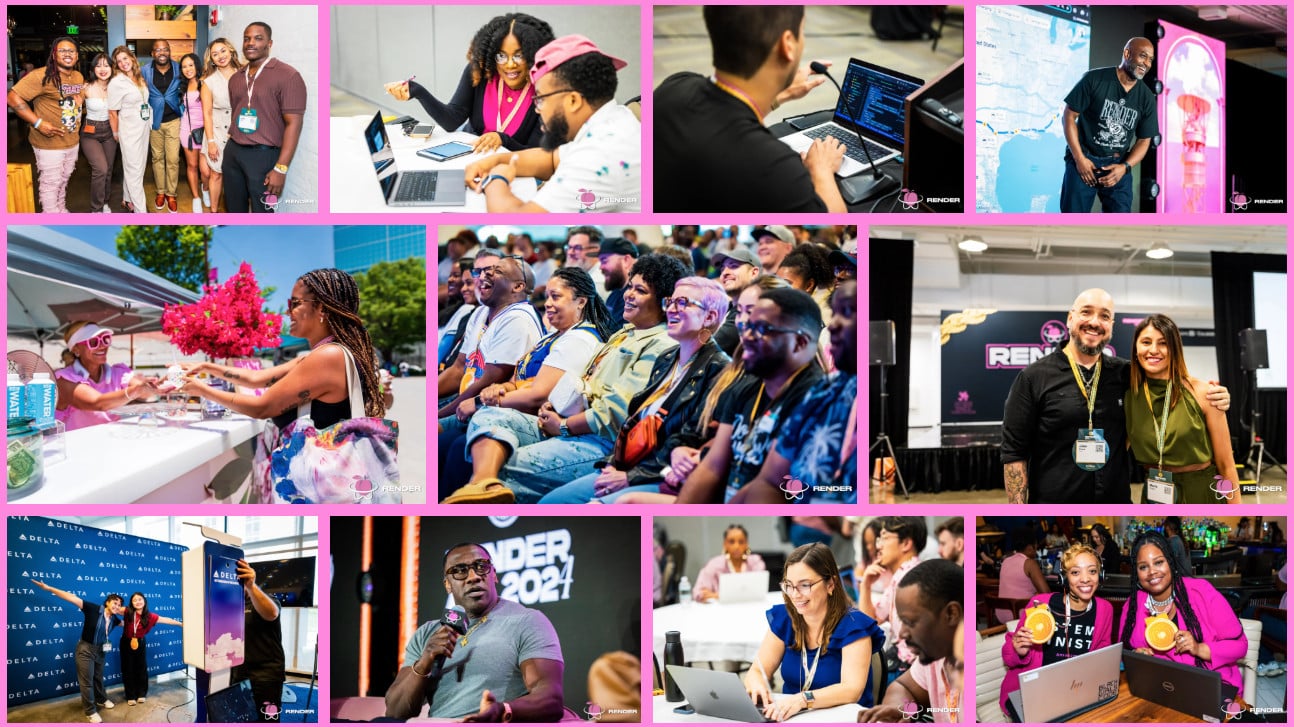RenderATL 2025 transformed Atlanta into a hub of cutting-edge software development, bringing together industry leaders to explore the intersection of artificial intelligence and traditional craftsmanship. This year’s conference painted a compelling picture of an industry in transition—one where AI amplifies human creativity rather than replacing it. Here are the key themes that emerged from this year’s standout sessions.
AI as Your Development Partner
The most striking trend at RenderATL was the evolution of AI from a novelty to an essential development partner. The “Build your own AI engineer” session demonstrated how developers can create autonomous systems that handle GitHub issues and generate pull requests, essentially building personalized engineering assistants that rival tools like Devin and Copilot.
But perhaps more intriguing was the emergence of Model Context Protocol (MCP) as a game-changing interface layer. Kent Dodds showcased how we can give AI assistants the tools they need to perform genuinely useful tasks—imagine Jarvis, but for your development workflow. The “Vibe Coding with MCP” session took this further, demonstrating how Goose (an open-source AI agent) can handle voice cloning, audio editing, and real-time transcription from a single prompt.
This isn’t about replacing developers; it’s about creating a new paradigm where AI handles the mechanical aspects while humans focus on the strategic thinking that truly matters.
The Platform Renaissance
While AI dominated many conversations, Una Kravets from Google’s Chrome Developer Relations team delivered a powerful counter-narrative in “Back to the future: of web development.” Their message was clear: the most exciting innovations are happening in native CSS and HTML—not in the latest framework abstractions.
This “back to basics” approach resonated throughout the conference. As developers rush to adopt AI tools, there’s growing recognition that understanding the underlying platform is more crucial than ever. Modern CSS capabilities are genuinely magical, offering performance and accessibility benefits that no framework can match.
DraftKings’ infrastructure team exemplified this platform-first thinking at scale. Their approach to handling Super Bowl and March Madness traffic surges—where millions of users flood their platform simultaneously—relies on fundamental engineering principles: scalable architecture, real-time data processing, and thoughtful technology adoption rather than chasing every new trend.
TypeScript’s Expanding Universe
TypeScript emerged as more than just a type system—it’s becoming a powerful metaprogramming platform. The revelation that TypeScript’s type system is Turing complete opened minds to possibilities beyond basic interfaces. Developers showcased practical applications of advanced TypeScript features that make code more type-safe and expressive.
The “WTF TypeScript” session provided a perfect counterbalance, exploring the language’s quirks and oddities with humor and insight. These seemingly contradictory perspectives—TypeScript as both incredibly powerful and occasionally perplexing—reflect the language’s maturation and the community’s growing sophistication.
Engineering for the AI Era
Perhaps the most profound insight came from Figma’s presentation on “The New Blueprint.” As AI generates code faster than ever, engineers must slow down to think critically about what to build and why. The future belongs to engineers who combine technical skills with product intuition, design thinking, and strategic problem-framing.
This theme echoed throughout the conference: in an AI-augmented world, human judgment becomes more valuable, not less. The engineers who thrive will be those who can harness AI’s capabilities while maintaining the critical thinking that separates good software from great software.
Looking Forward
RenderATL 2025 revealed an industry at an inflection point. AI is reshaping how we build software, but the fundamentals of good engineering—understanding the platform, thinking strategically, and solving real problems—remain paramount. The future isn’t about choosing between AI and traditional development; it’s about thoughtfully integrating both to create better experiences for users and more fulfilling work for developers.
As Atlanta’s tech community continues to grow, conferences like RenderATL serve as crucial gathering points for these conversations. The future of development looks bright, powered by both artificial intelligence and human wisdom.
See the author’s previous coverage of conventions and conferences:
JavaScript in the Emerald City: CascadiaJS 2024 Highlights
Open Source Insights and Innovations: Reflections on All Things Open 2023
Breaking Chains with React Native: My Adventure at Chain React 2023

